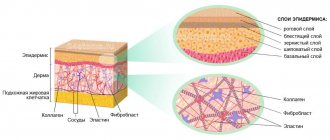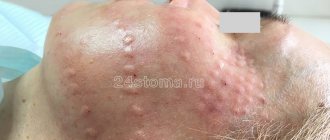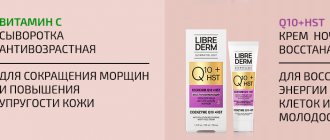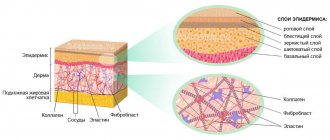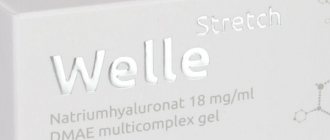The skin is one of the largest human organs. It protects the body from negative environmental influences. Initially, it is the skin that encounters various bacteria, viruses, chemical and physical factors. Unfortunately, often due to a lack of vitamins, the skin can be susceptible to various diseases, including various types of dermatitis. In this case, not only the appearance is violated, but also the protection of all internal organs. In the online store, vitamin preparations are sold in a large assortment.
Types and causes of the disease
Dermatitis can develop on any part of the skin. However, in any case, you need to contact a specialist to establish possible causes and select appropriate treatment, especially if the patient is a small child. Self-treatment may cause the condition to worsen
There are many types of dermatitis, often they have similar symptoms, so they can be confused. That is why it is necessary to contact a specialist to carry out all the necessary examinations and, if necessary, undergo additional ones.
Contact dermatitis can occur due to three factors:
- Exposure to chemicals (acids and caustic compounds),
- Physical contact - different temperatures, pressure, friction,
- A biological factor involves contact with certain types of plants that can cause a negative reaction on the skin.
The size of the damaged areas depends on the degree of contact of the irritating substance with the skin. Allergic forms of dermatitis occur in people who have hypersensitivity to various substances and compounds.
The use of vitamin complexes for skin diseases internally and externally gives a good effect; as a rule, they are used in combination with other medications.
How can you compensate for the lack of vitamins?
Vitamins enter the human body with food in insufficient quantities to fully support organs. Therefore, in order for the skin to remain healthy, fresh, moisturized and youthful longer, an integrated approach is needed: a balanced diet, consumption of biologically active supplements to the daily diet, and a beauty routine enriched with vitamins.
- Cosmetics with vitamins The most highly concentrated formulas are face creams and serums. The compositions of these products can combine several vitamins at once or have a mono-vitamin base. The composition should be selected based on the type, condition and needs of the skin.
- Cosmetic procedures Aesthetic procedures based on injections, for example, biorevitalization, mesotherapy, involve the delivery of a vitamin complex with hyaluronic acid to the deep dermal layers. Alternative non-invasive methods of skin vitaminization are electroporation and non-injection mesotherapy.
- Vitamin-mineral complexes Dietary supplements enrich the body with nutrients, in particular, they help nourish the skin with vitamins from the inside and make up for the lack of useful components coming from food.
- Nutrition The easiest way to fortify the body is a balanced diet. Enrich your diet with fresh fruits and vegetables, herbs, berries, nuts, cereals - these products are high in nutritional components and have a positive effect on the skin.
Vitamin deficiency and dermatitis
Quite often, the cause of the development of skin diseases is banal vitamin deficiency. A lack of beneficial microelements leads to a weakening of the immune system, as a result, all organs become more susceptible to the development of various pathological processes. However, skin problems can often be caused by a reverse reaction - an increased content of certain elements in the body. For example, excess copper or iron often leads to skin becoming dry and constantly flaking. Therefore, it is important to consult a specialist to accurately identify the cause of dermatitis, as a result of which he will select the most appropriate dosage of the necessary substances.
The development of vitamin deficiency can be provoked by:
- Poor nutrition. This phenomenon occurs as a result of many reasons - constant dieting, the presence of allergic reactions, social reasons.
- Diseases of the gastrointestinal tract, disturbances of intestinal microflora.
- Excessive consumption of alcoholic beverages.
With a lack of fat-soluble vitamins (A, D, E, K) in the body, the amount of necessary chemical compounds that are needed for the normal functioning of beneficial elements is reduced. As a result, the process of absorption and movement within the body is disrupted.
If there is a lack of water-soluble vitamins (C, H, group B, nicotinic and folic acid), then the cellular immunity of the skin is disrupted and its protective functions are reduced.
Vitamin E for face –
Research shows that vitamin E is a very powerful antioxidant that helps reduce free radical damage to the skin. As is known, the latter play a big role in the aging process of the body. Vitamin E for facial skin actively fights free radicals and, as a result, prevents early aging.
Research has shown that vitamin E is also effective at absorbing harmful ultraviolet rays from the sun. In addition, cosmetic products containing a combination of vitamin E and vitamin C have been shown to be more effective in protecting against the sun than products containing either vitamin alone (link to study).
Scientists have also found that vitamin E can accumulate in the epidermis (the surface layer of the skin). This leads to an increase in the hydrophobic properties of the epidermis, i.e. the evaporation of moisture from the surface of the skin will decrease and, thus, its hydration will increase. That is why vitamin E for the face - reviews from cosmetologists confirm this - is a desirable component in any moisturizing cream.
Thus, vitamin E for the skin allows -
- protects against UV rays,
- has powerful antioxidant properties,
- has an anti-inflammatory effect,
- helps in the fight against wrinkles and fine lines,
- moisturizes and softens dry skin,
- reduces the risk of cell mutation and skin cancer development.
Forms of vitamin E - there are several forms of vitamin E, but the most biologically active and safe form is alpha-tocopherol (synonyms - “alpha-tocopherol acetate”, “alpha-tocopheryl acetate”). The use of this form is recommended by the FDA. This form is natural (natural).
There are also synthetic forms of vitamin E, which are synthesized from petroleum products. Such forms are less active and safe. They will be indicated in the instructions of cosmetic products with the prefix “DL”, for example, “dl-tocopherol” or “dl-tocopheryl acetate”.
On the Internet you can find many different ways to use vitamin E for your face at home, because... it can be bought cheaply at any pharmacy, and its benefits for the skin are enormous. That is why vitamin E for facial skin - reviews from cosmetologists and patients confirm this - must be in the cosmetic bag of any woman who takes care of her appearance. Below we will tell you how to use vitamin E capsules for the face and skin around the eyes...
How to use vitamin E for dry and sensitive skin –
Those with dry and sensitive skin know how important and difficult it is to find the right ingredients to keep your skin healthy. Vitamin E is one of the few that can be used effectively without buying expensive serums and creams. At the pharmacy you can freely buy bottles or capsules containing an oil solution of vitamin E inside (Fig. 3-5).
Vitamin E for the face: how to use
- Warm it in your hands and then squeeze out 1-2 capsules of vitamin E.
- Apply with light massaging movements onto the skin.
- It is best to do this in the evening (before bed).
How to use vitamin E for the skin around the eyes –
Vitamin E capsules can perfectly replace expensive eye cream. However, remember that pure vitamin E is a potential allergen, and therefore can cause severe allergic reactions when it comes into contact with the mucous membranes of the eyelids (24stoma.ru).
Gently squeeze 1 capsule into the palm of your hand and apply the contents around the eyes using the pad of your ring finger. Use patting, as if driving, movements, because... This is least likely to injure the delicate skin of the eyelids. It is best to apply vitamin E to the skin around the eyes at night and not wash it off until the morning.
Vitamin E face mask –
There are a huge number of recipes for vitamin E masks that you can prepare at home. Below are the most popular of them.
- Honey mask with vitamin E for dry skin – take a teaspoon of honey, add 2 capsules of vitamin E to it, mix well. Then apply this mixture to your face and décolleté. Leave the mask on for 20 minutes and then rinse with warm water. This mask can be done 2-3 times a week.
- Anti-wrinkle mask with avocado and vitamin E –
First mash half a fresh ripe avocado and then add 2 vitamin E capsules and mix well. After this, apply this paste on your face and neck, leaving this mask on for 15-20 minutes. At the end of this time, rinse it off with warm water.
Vitamin E for chapped lips –
During winter, lips often become chapped and cracked, causing very painful sensations. With the help of vitamin E, you can not only quickly heal cracks on your lips, but also moisturize your lips well, thereby preventing further damage to the skin of your lips.
How to use –
- Apply the contents of 1 vitamin E capsule to your lips,
- It's best to do this at night,
- Avoid licking your lips, because... this will prevent the vitamin from being absorbed into the skin.
Signs of dermatitis
With dermatitis, symptoms develop gradually. At each stage, symptoms appear with different intensities and persist for different times. Dermatitis goes through the following stages:
- Severe itching
- The appearance of redness
- Development of swelling,
- Bubble formation
- The process of bursting bubbles
- Formation of weeping ulcerative lesions,
- Drying, formation of crusts, cracks,
- The appearance of blue-pink spots and scar formation.
With the allergic form of dermatitis, the last stage does not develop.
Cosmetics with vitamin C
Vitamin C is a powerful natural antioxidant that is found in various masks, scrubs, creams, serums and other cosmetics. This vitamin has good whitening characteristics, prevents the formation of age spots and wrinkles, protects the skin from the effects of reactive oxygen species, stimulates the formation of new cells and collagen fibers, which increase the firmness and elasticity of the skin, increases local immunity of the skin, improves complexion and evens out skin tone. . Vitamin C in cosmetics is quite unstable, so to produce products, manufacturers often use it not in pure water, but in the form of ascorbic acid salts. Thanks to this, cosmetics with vitamin C can penetrate into the deeper layers of the epidermis and act from the inside.
Cosmetics with vitamin C are contained in:
Intensively restoring cream-gel “Intens recovery Amino – C” from the Beauty Style brand Intensively restoring serum “Intens recovery Amino – C” from the American manufacturer Beauty Style
Cosmetics with vitamin F
A unique vitamin consisting of a whole complex of polyunsaturated fatty acids, including: linoleic, linolenic and arachidonic. Vitamin F is used to create cosmetics intended for dry, dehydrated, irritated and sensitive skin. This component is involved in oxygen and fat metabolism, fights dryness and flaking, restores skin elasticity, neutralizes the effects of free radicals, protects the skin from premature aging, enhances cell regeneration, improves metabolic processes, soothes inflammation, and prevents the development of dermatological diseases. Cosmetics with vitamin F are also created for hair: it prevents dandruff and hair loss, improves the firmness and elasticity of curls, and protects against ultraviolet radiation.
Vitamin F is found in:
Emulsion for eye and lip makeup remover from the American brand Beauty Style Super moisturizing cream for hands and elbows from the American manufacturer Beauty Style Emulsion for eye and lip makeup remover from the Beauty Style brand
Brief information about the necessary vitamins for various problems
As you can see, vitamins of different groups have a similar effect on the skin, hair and nails, and their deficiency also has much the same effect on the body, so it can be difficult to understand what exactly is missing to maintain youth and beauty. The online store Futi-beauty.rf has compiled a brief information for you - what vitamins are needed for different types of problems:
- acne, increased oily skin – vitamins A, B, C, E;
- wrinkles – vitamins C, E;
- premature skin aging – vitamins A, PP, B, P, D, N, E, K, F;
- vascular networks and asterisks – vitamins C, P;
- loss of elasticity – vitamin E;
- peeling and dryness – vitamins A, PP, C, N, E, F, D;
- age spots – vitamins C, K.
Cosmetics with B vitamins
Cosmetics containing B vitamins have a moisturizing, soothing, strengthening and regenerating effect on the skin. They participate in the metabolic processes of proteins, carbohydrates and fats, and also synthesize the amount of fatty acids necessary for the skin. B vitamins are often added to creams, masks and serums for the face and hands, as well as shampoos and hair conditioners. B vitamins are believed to work well together with retinol. Since this group of vitamins is water-soluble, the products have a light, delicate and airy consistency that does not clog pores or cause oiliness. Cosmetics with B vitamins are very sensitive to light, heat and water, so it is recommended to store them in the refrigerator and tightly close the jars with a lid. Each B vitamin has certain properties:
- Vitamin B1 (thiamine) – has an anti-aging effect, protects the skin from stress and ultraviolet radiation, as well as smoking and alcohol.
- Vitamin B2 (riboflavin) – participates in redox reactions, normalizes cellular respiration, stimulates the renewal of cells and tissues in the body, regulates the functioning of the sebaceous glands.
- Vitamin B3 (niacin, vitamin PP) – supports the protective functions of the skin, stimulates the production of collagen, elastin, fatty acids and ceramides, lightens age spots, eliminates redness and inflammation, normalizes sebum production, improves microcirculation.
- Vitamin B5 (panthenol) – promotes tissue restoration, accelerates regeneration processes, activates the production of collagen and elastin, and strengthens local immunity.
- Vitamin B6 (pyridoxine) – synthesizes nucleic acids, protects the skin from the negative effects of the environment, as well as premature aging.
- Vitamin B7 (biotin) – accelerates the restoration of cells and tissues, nourishes the skin, strengthens it, fights free radicals, nourishes and smoothes the hair.
- Vitamin B9 (folic acid) is a powerful antioxidant that protects the skin from the negative effects of ultraviolet radiation and the appearance of pigmentation, synthesizes collagen and elastin fibers, relieves inflammation, strengthens nails and hair.
- Vitamin B10 (para-aminobenzoic acid) – neutralizes the negative effects of ultraviolet radiation, strengthens hair roots, prevents hair loss, restores skin elasticity, evens out complexion.
- Vitamin B12 (cyanocobalamin) – normalizes cellular respiration, improves skin color and tone, fights stress.
B vitamins are found in:
Day cream with Matrixyl with a rejuvenating effect from the manufacturer Beauty Style Sunscreen emulsion SPF 20 from Beauty Style Makeup remover foam with argan stem cells from the Beauty Style brand Light exfoliant “Cleansing universal” with micro-resurfacing effects for all skin types from the Beauty Style brand Hyaluronic acid serum 2%" from the American company Beauty Style
Vitamin B9 (folic acid)
Folic acid plays a huge role in the development of the circulatory and nervous systems. Regular intake of this vitamin is most important for children and pregnant women. Sufficient intake of vitamin B9 helps to avoid anemia, and for pregnant women to reduce the risk of spontaneous abortion and prevent defects in the development of the nervous system in the unborn child.
Found naturally in green vegetables, cereals, and liver.
The daily requirement depends on age and is 200 mcg for an adult, and 400 mcg for pregnant women.
Vitamin B2 (riboflavin)
Riboflavin is a precursor of two enzymes, FAD and FMN, which are essential for tissue respiration. These substances are intermediate participants in the transfer of electrons in the respiratory chain and other energy reactions. The substance itself has a bright yellow color and is sometimes used as a dye in powders for making broth. The daily requirement is 2-4 mg. With a deficiency, inflammation of the skin and mucous membranes, seizures in the corners of the mouth, and general muscle weakness occur.
Natural sources are egg yolks, wholemeal flour and baked goods, and yeast.
Cosmetics with vitamin A
Vitamin A, also known as retnol, is one of the most popular anti-aging components in cosmetics. It helps fight the first signs of aging, wrinkles, sagging skin, pigmentation and dull complexion, as well as acne. Cosmetics with vitamin A are able to penetrate the upper layer of the dermis, protect the skin from negative environmental factors, activate the production of collagen and elastin, and prevent the appearance of stretch marks. Anti-aging products with this vitamin are not recommended for use before the age of 35. You should also be careful with the dosage and excess vitamin A - it can cause increased sensitivity to ultraviolet radiation. Vitamin A is quite unstable and is destroyed by exposure to light, so retinoids are often added to cosmetics. Be careful with pure vitamin A, which is sold at the pharmacy. In large quantities it can cause an allergic reaction.
Vitamin A is found in:
Photoprotective cream SPF 50 from the Mesoderm brand Strengthening vitamin cocktail with coenzyme Q10 for dermaroller from the Mesoderm manufacturer
